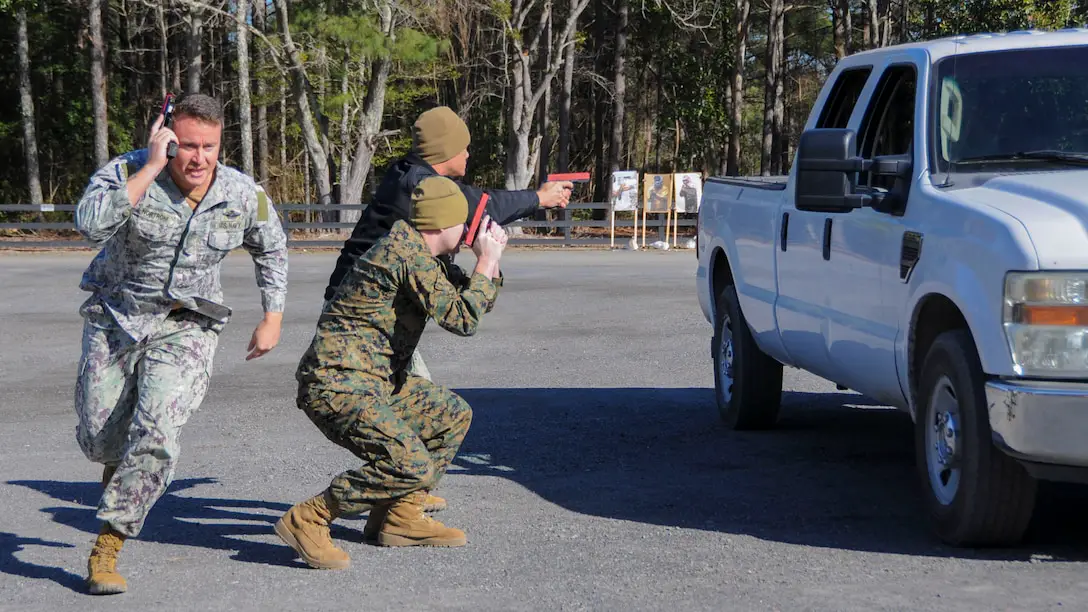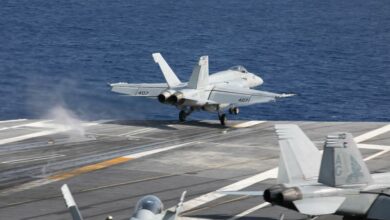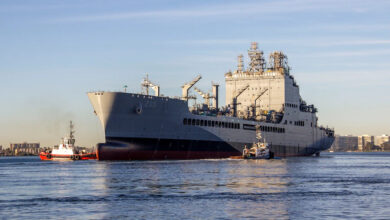The US Navy has launched its inaugural Weapons and Threat Recognition Training Course for the agency’s Forward Deployable Preventative Medical Unit (FDPMU) to prepare them for large-scale combat operations.
FDPMU is a mobile group responsible for force health protection and medical hazard detection. The team coordinates with unit commanders and other decision-makers to secure the physical wellbeing of sailors stationed across international locations.
Transforming Into ‘Force Multiplier’
Held in Suffolk, Virginia, the course focused on lessons to address dangerous scenarios and predict violent responses based on identifiable triggers and conditions.
The five-day activity also covered threat identification, de-escalation approaches, weapon retention, and basic combative and self-defense.
Simultaneously, indoor classroom training provided lectures on shooting fundamentals, handgun safety procedures, situational awareness, combat mindset, and case study discussions on low-intensity conflicts.
A hands-on range session was also facilitated in which participants simulated multi-position, on-the-move, and behind-cover firing.
Based on their performance, including tactical reload and weapons malfunction correction, each member was graded according to expert, sharpshooter, and marksman capability through the Navy Handgun Qualification.
Trainees then completed the course in a culminating phase that required members to safely extract from a vehicle in an active scenario while moving towards a hard point for cover.
“After receiving this training, FDPMU members can safely and effectively operate their weapon systems, perform their required duties, and execute close quarter combatives if necessary while out in a deployed environment,” Navy/Marines Preventive Medicine Former Director Cmdr. George Vancil stated.
“This makes them, not only an asset in maintaining force health protection, but a force multiplier, able to step in and provide physical security support when and if called upon to do so.”
Combat Support Role Integration
FDPMU Operations Planner Herschel Haynes explained the importance of equipping his unit with “hard skills” to maintain survivability from “from uncertain, chaotic, and potentially kinetic operations.”
“The FDPMUs are proven force enablers,” Haynes said. “They have been since their first deployment in 2004 and continued to be in more than eight years at war during Operation Iraqi Freedom and Operation Enduring Freedom.”
“The training received through the course is largely built from that experience and will ensure the FDPMU is able to operate effectively in a distributed maritime operational environment as they perform their combat support role.”












